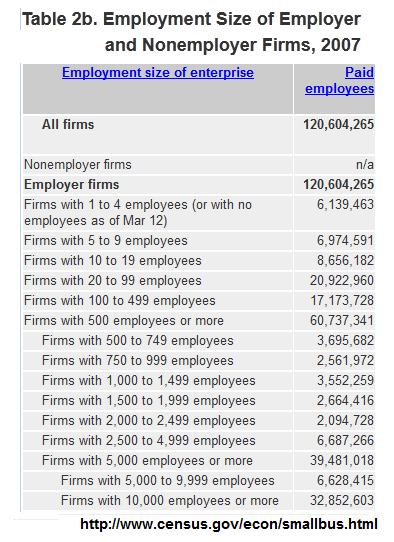- Apr 12, 2011
- 3,834
- 772
- 130
OK, we'll concede that this is how it may be on your planet--...88% is small businesses (I mean real small, 5 employees or under)..
--but back on Planet Earth we got the Census Br. saying on this site that--

--firms with 5 or less employees represent about a sixteenth of the hiring.

